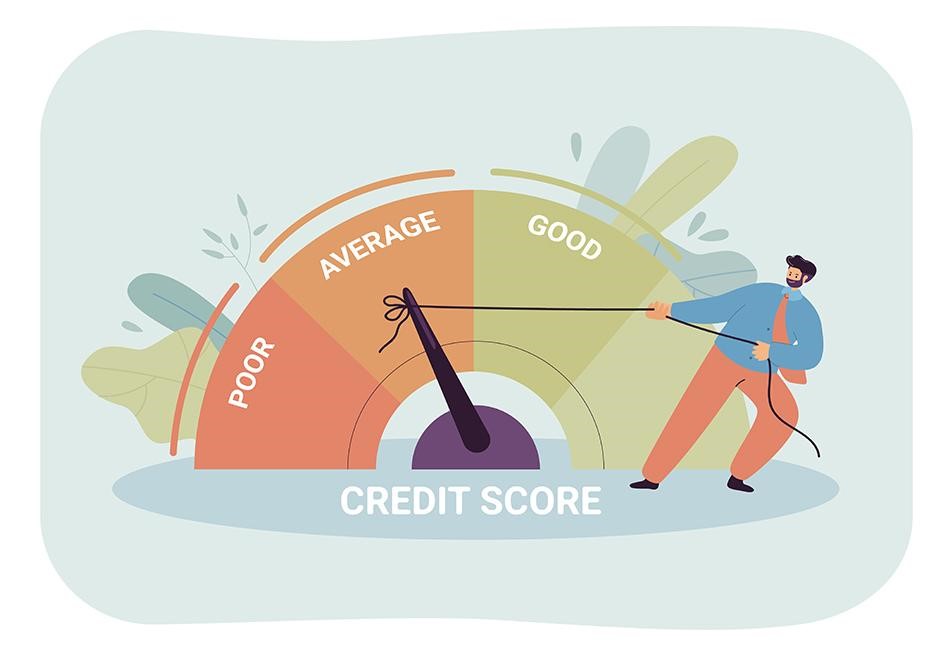With the monsoon in full swing, you are probably planning a road trip or looking to enjoy a shopping spree during the upcoming online sale. Whatever your requirement, a credit card can help fulfil those and offer additional benefits like discounts, cashbacks, and reward points. The advantages of having a credit card differ from one card to another, but what remains roughly the same is the application process.
A key factor that determines your eligibility for a credit card is your CIBIL score. This is one of many reasons why individuals are always wondering about how to improve their CIBIL score. While we are aware of the fact that this score is essential in acquiring an important payment tool such as a credit card, it is possible that you may not know about how it affects your application.
How Does Your CIBIL Score Affect Your Credit Card Application?
A CIBIL score is a three-digit number used to evaluate your creditworthiness and ranges between 300 and 900. The figure is computed by TransUnion CIBIL, who takes into account various factors when calculating the score. These include your credit history, the number of active loans and other liabilities, credit utilisation ratio, repayment records, and so on.
Usually, credit card issuers check your CIBIL score to assess your capability of making complete repayments on time. The score directly affects the chances of your application being approved. Hence, it is essential to maintain a good CIBIL score for getting new credit cards.
What is the Ideal CIBIL Score for Applying for a Credit Card?
In order to avoid your application from being rejected, it is important to learn about how much your CIBIL score should be. Ideally, if your score is over 750 points, the issuer is likely to give you a new credit card without hassles.
If your score falls into the range of 700 to 750, you might be met with some turbulence where the providers might be hesitant to give you a credit card. However, other factors may push them to issue a card for you.
On the other hand, if your score drops below the 700 mark, it is less likely for your application to be approved. Therefore, it is essential to build a good CIBIL Score when applying for a credit card.
How to Improve Your CIBIL Score?
Are you worried that your application may be rejected because of a low CIBIL score? Don’t worry, given below are some methods you can follow to improve your score:
1. Repay on time
Making your payments on time like the instalment of a home loan is essential to building your credit score. On-time payments help increase your credit score and also assure your card issuer of your punctuality. For this purpose, it is advisable to set reminders. Missing your deadlines not only lowers your score but also leads to a penalty charge, which leads to you losing your own money. To maintain a good CIBIL score for credit card, it is essential that you make timely repayments.
2. Maintain a good credit utilisation ratio
This ratio usually indicates the credit you utilise compared to the aggregate credit amount you are eligible for, in the form of a percentage. Maintaining this figure at about 30% is advised. A good credit utilisation ratio indicates that you utilise the credit available to you wisely and are not stuck in a cycle of insufficient funds. Hence, if you have too many loans, it would be beneficial to close them.
3. Manage your cards
Owning multiple credit cards is not something to be frowned upon, however, managing them can be tricky. On the other hand, if you can effectively manage these payment instruments and repay the bill on time, these can help grow your CIBIL score exponentially. This is because an old credit card, when used well, lengthens your credit history and proves your creditworthiness. This plays a major role in the calculation of your score.
4. Avoid frequent applications
When you apply for a loan or a credit card, the service providers usually check your CIBIL score and credit history. This helps them assess your repayment capabilities and is an essential step in the process. However, such checking leads to a ‘hard inquiry’. These tend to reduce your score when done too often and should thus be avoided. One application at a time can improve your chances of getting the required credit card or loan.
5. Report discrepancies
It is important to keep a close eye on your CIBIL reports. It is possible that some instalments paid on time are not recorded. Such a default can have a major impact on your report. This will lead to a drop in the CIBIL score required for your credit card application. Hence, it is crucial to keep checking the report diligently and contacting CIBIL in case of such errors to make sure that these are resolved immediately.
Now that we have learned of the importance of CIBIL score and its effects on your credit card application, utilise this information to your benefit. Improve your score and go apply for a new card to fulfil all your long-term and short-term financial goals.





Be First to Comment